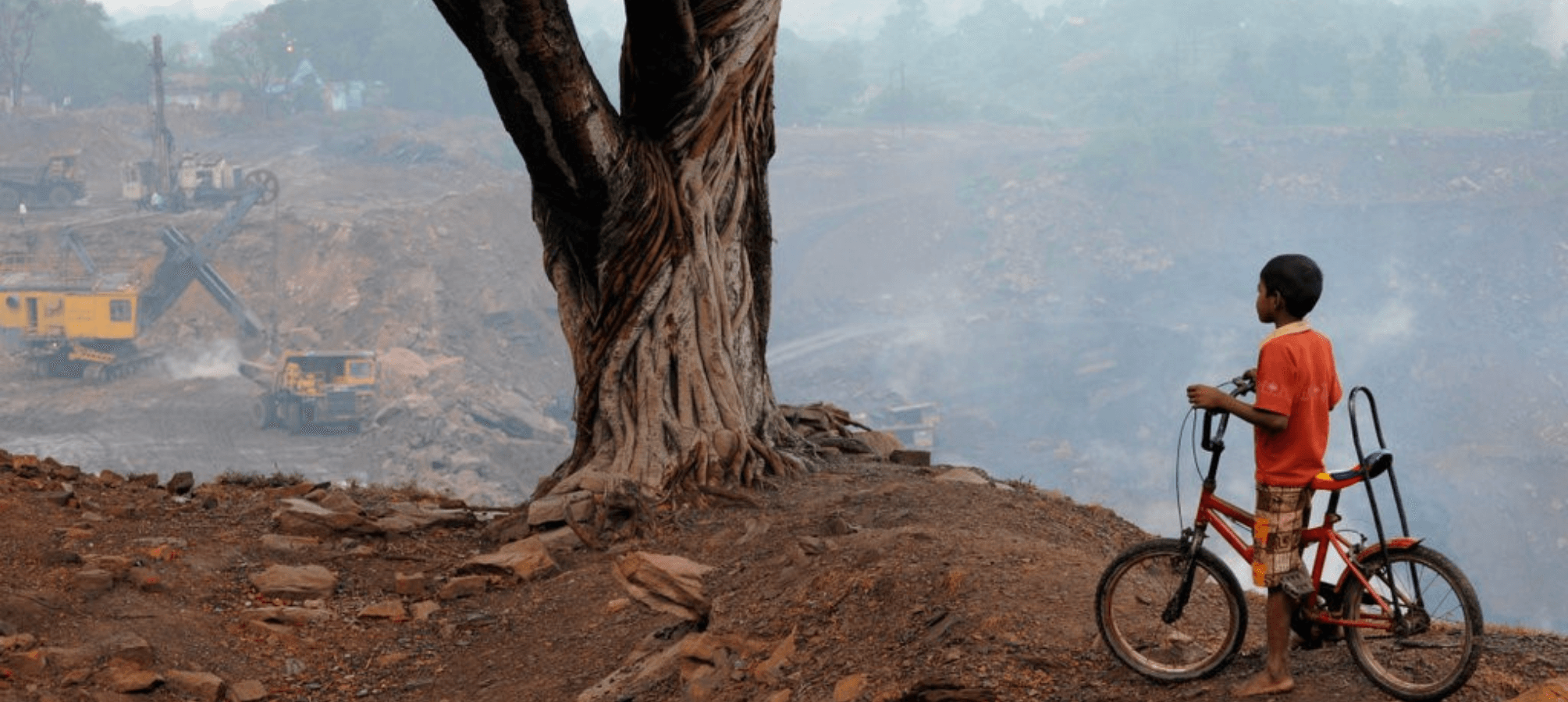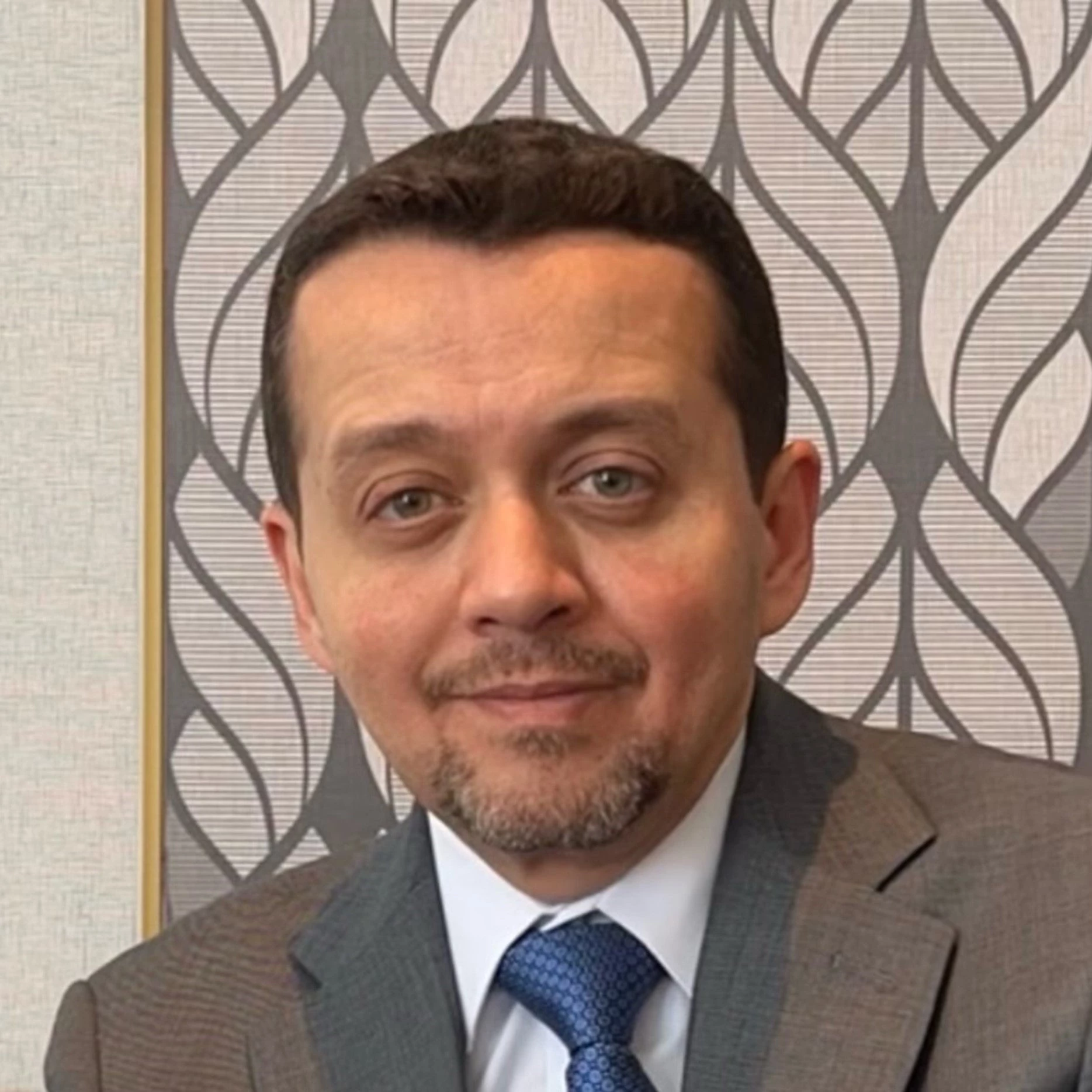 boy rides bicycle next to an open coal mine burning
boy rides bicycle next to an open coal mine burning
Earth Day 2021 falls well into the second year of the global COVID crisis. Will it be a day for sorrow or a moment for hope? The first Earth Day in 1970 encompassed both, born as much from the anguish of the pesticide disaster documented in Silent Spring and the blazing Cuyahoga River as from the promise of NASA’s Earthrise.
The pandemic has cast a cruel light on the state of public health services and health systems, broadcasting the chronic lack of capacity to manage emerging public health risks. At the same time, the climate crisis, the most ‘super-wicked’ of all problems, threatens to further turn the screw.
Climate change presents a clear and present risk of disrupting and overwhelming health systems, hampering progress towards Universal Health Coverage (UHC) particularly where fragilities are the greatest. Despite numerous reasons for alarm, the collective global effort to respond and recover from COVID has revealed that an often-divided world is able to work together to tackle the pandemic, offering hope that overcoming the climate crisis may also be possible.
Climate change and health risks
Like the threat of COVID, the health risks from climate change are immediate. Unlike COVID, these risks are projected to rise over the coming decades unless rapid and profound action is taken. Climate change is of course not the direct cause of the emergence or transmission of COVID. However, the health impacts of both crises interact in several important ways: both share several overarching drivers and impact similar vulnerable populations. They also require overlapping health sector responses, either to deal with current threats or to ensure that opportunities to build back better are not missed.
Health sector responses to the COVID pandemic can leave health systems more resilient and more adapted to climate-related events. The global collaboration we have witnessed in the response to the COVID pandemic provides lessons to replicate in the response to the climate and health challenge.
In addition, beyond simply helping us to ‘cope’ with climate impacts, the convergence of COVID and climate change offers the real promise of tackling both crises simultaneously by building truly sustainable health systems, which decouple progress towards UHC from carbon emissions.
Embedding a One Health approach that integrates human, animal, and environmental health data in the Public Health Surveillance and Risk Assessment of our COVID-19 response operations – to shift the focus upstream from response to preparedness, and ultimately prevention, is one such example.
Similarly, in Emergency Preparedness, Response and Recovery, developing multi-hazard emergency preparedness and response plans that incorporate both pandemic and climate change-related threats, support improved governance and coordination, and include financing mechanisms for emergencies offers huge benefits.
Climate resilience cuts across health and other sectors
When considering the expansion of capacity for COVID testing, isolation, and treatment, using renewable and/or hybrid energy sources to provide a reliable electricity supply should be the norm. The procurement of essential medical commodities for pandemic and disaster response can prioritize local production to ensure a steady, sustainable supply of commodities that also reduces transport emissions.
Plans for the all-important vaccine deployment should include investments in energy-efficient, sustainable cold chain infrastructure and supply systems that also strengthen health sectors, such as low carbon transportation, recyclable medical equipment and packaging, environmentally friendly cooling options, and the use of low carbon/renewable energy sources.
Beyond the emergency response, building back better to deliver green, resilient, and inclusive development is perhaps where the greatest gains can be made. This will require further investments in climate-smart healthcare infrastructure and large-scale shifts to renewable energy generation as well as the promotion of active transportation (walking and cycling).
When rebuilding, refurbishing, or retrofitting disaster-affected healthcare facilities, the adoption of green building principles, such as the use of nature-based solutions for flood or wildfire protection as well as day-to-day heat buffering, is of paramount importance.
Catalyzing public and private sector investments through innovative financing mechanisms will be crucial to support climate-smart measures that will require multisectoral resources outside the traditional health or climate sectors, including energy, agriculture, water, urban planning, transport, and environment. Allied fields such as digital health, although not focused on climate mitigation as an explicit outcome, may also provide climate benefits.
The pandemic has already reshaped the world, magnifying gaps in health systems and exacerbating pre-existing inequalities. Climate change will redefine our planet. We need to act now and build on the unprecedented international collaboration that has developed over the last year to enhance health system resilience to both climate change and current and future pandemics.
Let’s work to ensure that hope outweighs sorrow by Earth Day 2022!



Join the Conversation
EARTH DAY APPEAL TO SCIENTISTS How are we to solve problems when self-proclaimed experts willfully refuse to communicate openly about the root causes of them? That extant, virtually irrefutable, heretofore uncontested, sound ecological science of human population dynamics is ubiquitously denied by professional researchers with appropriate expertise, is tantamount to criminal negligence against science... and humanity. Please examine the following research, www.bioinfo.rpi.edu/bystrc/pub/pimentel.pdf There is a problem to which I would like to draw attention, a problem that has not been sufficiently examined. At least that is the way things appear now, after two decades of stony silence. The prevailing opinion that the food supply needs to be continuously increased to feed a growing human population happens to be what The Powers That Be, economists, demographers and ideologically driven scientists would describe as an ideologically correct, economically expedient, politically convenient, socially suitable, religiously tolerable, culturally prescribed, 'scientific' perspective. Even the UN has adopted this point of view. But such a perspective is pseudoscientific and wrong. At best it is evidence preternatural thought, theory and modelling. Virtually irrefutable, heretofore uncontested science directly contradicts this long-held misrepresentation of what could somehow be real with regard both to the conditions of being human and to the way the world we are blessed inhabit actually works. A fateful misunderstanding has come to be regarded as 'truth'. A critical misperception, or faulty impression, or misguided conception or perhaps a fatally flawed misinterpretation of data has given rise to a widely shared and consensually validated delusion, one of the most perfected delusions humanity presently holds. Let us expand our scope of observation to the species level. We can observe that food is the independent (not dependent) variable in the relationship between food and population growth and as well, it becomes more likely to perceive what the ecological science of human population dynamics is simply and clearly indicating to us: annually increasing the food supply for human consumption is unexpectedly producing a human population explosion. Perhaps we can share a more accurate and fulsome understanding of what is happening on our watch. By so doing, it could become possible for us to recognize why this apparently unforeseen and unfortunately unwelcome scientific evidence has been ubiquitously denied for so long. A vast majority of people evidently accept certain delusional thinking because many too many people appear to idolize the artificially designed, haphazardly constructed, manmade global political economy --- a leviathan-like construction --- that is buttressed by upside-down thinking which leads to the continuous, seemingly endless expansion of the food production and distribution capabilities. And yet annual food supply increases and abundant harvests are not resulting in the growing human population being fed, as anyone might expect in 2021. To the contrary, every year more people are being fed and more people are going hungry and starving. Can we imagine how the economic colossus could be preemptively reorganized in a protective response to an avoidable and foreseeable global economic and/or ecologic wreckage? Initial steps toward such an economic transition would begin with more fairly and equitably redistributing abundant harvests so that the members of the human community receive substantial sustenance, along with the implementation of a planful program based upon conscious, careful, deliberate and skillful human activity that limits increases only in total annual food production for human consumption, lest nature's full force take charge of this soon to become unsustainable situation. Endless growth of the human food supply will certainly end eventually, as it must because the colossal current scale and rate of growth is patently unsustainable on a planet with the size, composition and frangible ecology of Earth. The Powers That Be, economists, demographers, politicians, ideologically driven scientists, and all their sycophants and minions in the mainstream media promote (by speaking out loudly and often or by remaining electively mute in silence) the "Big Lie" that there is no alternative to growing the global political economy ad infinitum in a finite world. To do otherwise would in all likelihood put at risk their vested interests that the status quo serves to protect. Unbridled overproduction, overconsumption and overpopulation activities by the human species are occurring synergistically and the accumulated effects of global food overproduction are per capita overconsumption, overpopulation and the current ecological/climate emergency. Based on virtual mountains of scientific research, the elders' locked-step support for the present form and function of a perpetual motion construction called the global political economy is soon to become unmaintainable. Leading elders of the human community are directing their children down a primrose path. Perhaps necessary behavioral changes are in the offing toward redistributing more fairly and equitably abundant harvests; providing universal male and female contraception/sterilization; limiting increases only in total food production; adjusting to simpler, healthier lifestyles; and re-imagining the conduct of right-sized corporations in a world they willfully pollute and ravage without accepting responsibility. Out of necessity, humankind will find an alternative to wealth accumulation through endless economic growth as an objective for human existence. What do you imagine that objective could be?
Read more Read less